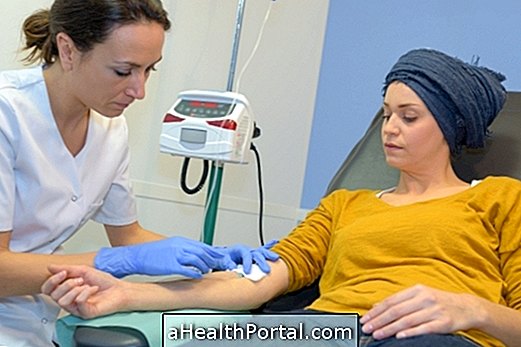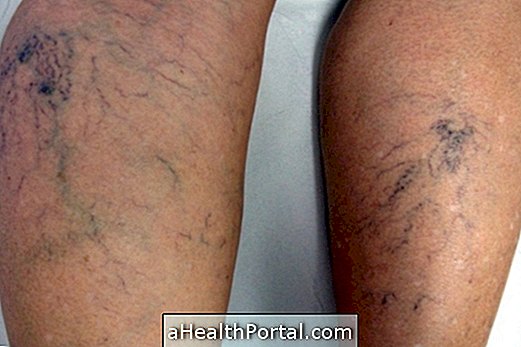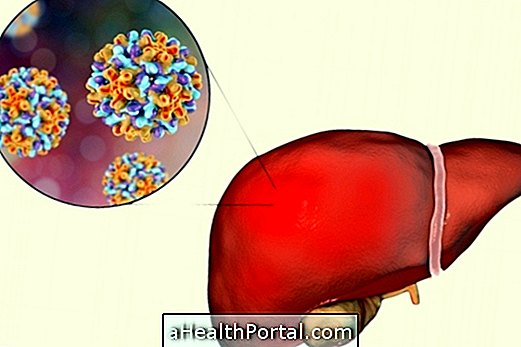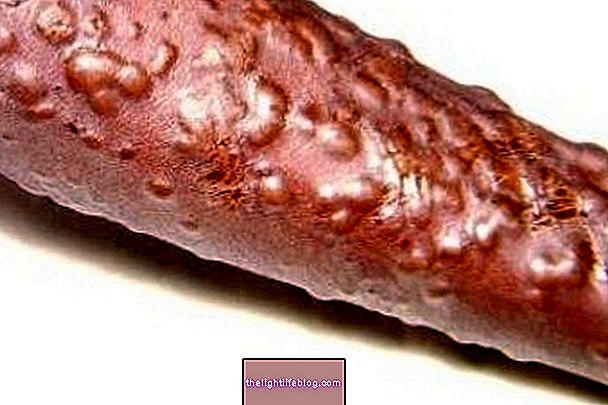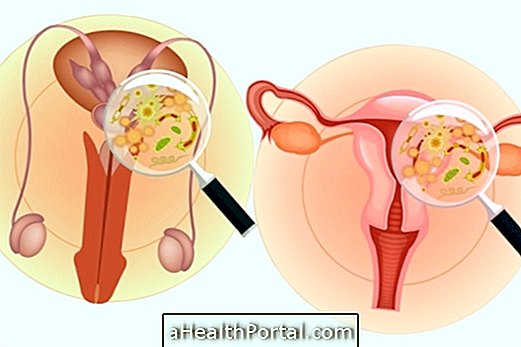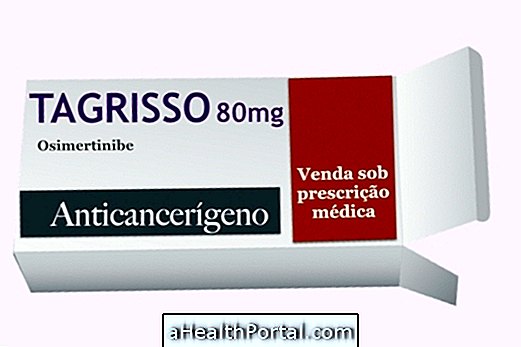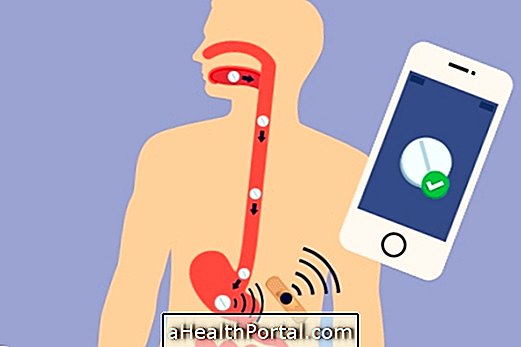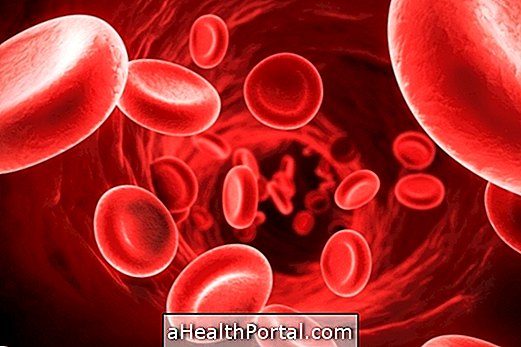Radioactive iodine is an iodine-based medicine that emits radiation, used mainly for the treatment called iodoterapia, indicated in certain cases of hyperthyroidism or thyroid cancer. At lower doses, it can also be used to evaluate thyroid function on the scintigraphy exam.
Iodine 131 is the most used in the treatment, however, iodine 123 is the best option for the test, since it has lower effects and duration in the body. To perform this type of procedure in the thyroid requires a special preparation, which is to avoid foods and medicines containing iodine about 2 weeks before. Here's how to make the diet without iodine.
In addition, some care is needed after using radioactive iodine, such as staying in a room for about 3 days, and avoiding contact with other people, especially children and pregnant women, until drug levels decrease and there is no risk of contaminating other people with its effect.

What is it for
The use of radioactive iodine in medicine has 3 main indications:
1. Iodoterapia for Hyperthyroidism
Radioactive iodine can be used to treat hyperthyroidism, especially in Graves or Plummer diseases, and is usually indicated when the patient does not get better with the use of medicines, when he can not use them for allergy or when a more disease, such as people who have heart disease, for example.
- How it works : Radioactive iodine treatment works by causing intense inflammation in the thyroid cells, followed by fibrosis of your tissues, which is responsible for reducing the excess hormones produced.
After treatment, the person will continue evaluations with the endocrinologist, who will monitor the functioning of the thyroid, whether the treatment was effective or whether there is a need for medication use. Check out more about the top ways to treat hyperthyroidism.
2. Iodine therapy for thyroid cancer
Radioactive iodine treatment in thyroid cancer is indicated as a way to eliminate remnants of cancer cells after removal of the thyroid, decreasing the risk of cancer recurrence. In some cases, it can also be used to help eliminate metastases, and the symptoms they produce.
- How it works : Radioactive iodine has a thyroid affinity, so it helps to find and eliminate cancer cells from this gland, and the dose used is variable, calculated by the oncologist to be able to destroy these cells.
Learn more about the symptoms that can indicate thyroid cancer, how to diagnose and treat it.
3. Thyroid scintigraphy
It is an examination given by doctors to study the functioning of the thyroid, to investigate diseases that may occur in this organ, especially when there are suspected carcinogenic nodules or are producing excess thyroid hormones.
- How it works : To perform the test, the person is asked to ingest a quantity of radioactive iodine (iodine 123 or iodine 131) with a straw, then images are generated for the device in 2 steps, one after 2 hours and one after 24 hours. As the dose of radioactive iodine is low, the person can go out and perform their activities normally in this period.
Pregnant or breastfeeding women should not take this test. Learn more about when thyroid scintigraphy is indicated and how it is done.

Precautions Before Iodo Therapy
For the treatment of radioactive iodine, some precautions are necessary, prior to the procedure, which include:
- Follow diet without iodine, not consuming foods containing iodine in the 2 weeks prior to treatment or examination, which includes saltwater fish, seafood, seaweed, whiskey, processed breads, chocolates, canned, spiced or sardine-containing products, tuna or soy and derivatives, such as shoyo, tofu and soy milk;
See more in the following video:

- Do not use medicines containing iodine or thyroid hormones in the days prior to the test as directed by your doctor;
- Avoid chemicals containing iodine in the month prior to the examination, such as hair dye, nail polish, tanning oil or iodized alcohol, for example.
- Perform the fasting test for at least 4 hours;
Care after iodine therapy
After taking the radioactive iodine tablet the person gets high doses of radioactivity in the body, which passes through the skin, urine and feces, so some care is needed to avoid passing the radiation to others:
- Stay in a room in isolation for about 8 days from the use of radioactive iodine, as directed by your doctor. Generally, you can stay in the hospital for 2 to 3 days and on other days you may be at home, but without contact with others, especially pregnant women and domestic animals;
- Take plenty of water to produce more urine, which helps to eliminate radioactivity from the body;
- Consume citrus products such as water with lemon or bullets to stimulate the salivary glands to produce more saliva and fight dry mouth and prevent them from accumulating the medicine.
- Always be at least 1 meter away from anyone, not being allowed to have sex or sleeping in the same bed during the period recommended by the doctor;
- Wash all used clothing separately during this week, as well as sheets and towels;
- After urinating or evacuating always give discharge 3 times in a row, in addition to not sharing the bathroom with anyone else in the house.
Dishes and cutlery do not need to be washed separately, and there is no need for special power after taking radioactive iodine.
Possible side effects
Some of the side effects that treatment with radioactive iodine can cause include nausea, abdominal pain and swelling and pain in the salivary glands.
In the long run, the effect of radioactive iodine can cause hypothyroidism, and it is necessary to use drugs to replace the lack of thyroid hormones. In addition, the action of radioactive iodine can also impair the functioning of other glands in the body, such as salivary and ocular, causing dry mouth or dry eyes, for example.



